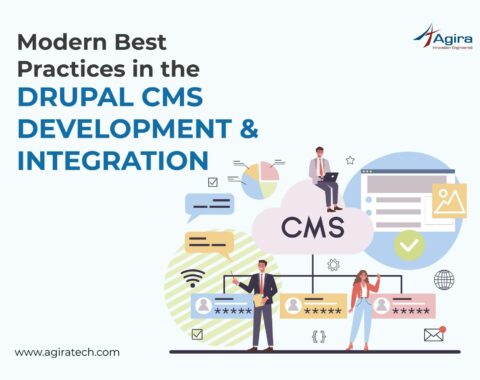Table of Contents
One of the most difficult steps for e-commerce entrepreneurs when developing an online shop is the option of an accessible web resource. Since creating a website from scratch is a very complicated and time-consuming process that involves an assiduous approach and considerable investment, company owners tend to use a content management system (CMS) that offers all the requisite trading features in one location.
Nowadays, in the industry, you are faced with a wide range of priced and free CMS solutions that vary in their particular collection of features, purposes, changes, durability, cost, and other operating characteristics. Considering your criteria, budget, and company growth strategies. Here is how you can cope with the key parameters of your audit.
What is a Content Management System (CMS)?
CMS is a content management system, a program that allows you to develop, edit, and post content on your website. This device is a critical component of your e-commerce shop, serving as an asset or a duty of your team to keep your website up-to-date and your ads up-to-date. By default, WordPress is the most dominant CMS in the industry. By 2019, WordPress had 58 percent of CMS market share, and WordPress powered 34 percent of the internet. That said, it’s far from the only CMS out there.
What to Look For In Your CMS
If you’ve considered the value of adding a CMS and have out on the other side with plans to acquire one, here are some of the important factors that you need to consider when choosing your CMS for eCommerce. Here is the list of criteria you should consider when choosing a CMS.
1. Effortless integration.
This happens especially if you pair an eCommerce website with different CMS to accomplish your eCommerce solution. To save you many headaches down the line, you’ll need to select a CMS that can combine cleanly with your eCommerce app.
Bear in mind that some content management solutions promise easy integration but do not deliver. Find a CMS with positive feedback and pleased consumers who are still using your website.
2. Easy installation and user-friendly
While some enterprise-level eCommerce CMSs would be more complicated and need a little more effort to get moving, consider the lift that will be included in the setup. You should be able to set up your CMS easily and start building value for your company. You and your writers/editors should be able to get in and out without running into any printing obstacles.
3. Extended value.
There is a wide variety of pricing for content management systems ranging from free (like WordPress) to costly. You won’t want to spend thousands of dollars a month unless your CMS doubles your earnings. Research to make sure you have the features you need to help your company, but don’t overpay for them.
4. Ready to Customization.
This is one that may or may not apply to your business but is worth thinking about. Are customization and personalization important to your customers? If so, make sure you have a CMS that can help you create personalized web pages for different user groups.
5. Helps SEO.
This may or may not apply to your company, but it is worth thinking about. Is customization essential to your customers? If so, make sure you have a CMS that will help you create custom web sites for various user classes.
Tips To Help You Choose The Perfect Ecommerce CMS Platform
Every online shop has specific needs, and your e-commerce site should represent that. Here are some helpful tips that let you choose the right CMS for your business.
- Hosting, domain name, year-to-year uptime, and bandwidth.
- In-product eCommerce website designer with downloadable, user-friendly website themes, and drag-and-drop features.
- Extensive app store with pre-built integrations and add-ons (e.g., social media, email marketing) with top-of-the-line service providers.
- Mobile-optimized website or mobile app with a UX-friendly checkout.
- Compliance with PCI.
- Visibility of the product control across all distribution platforms.
- SEO software and completely customized URLs worldwide (so you can rank on leading search engines).
- Built-in simple e-commerce features, including sales and discounts, analytics, catalog management, etc.
- Great client service.
- Abandoned cart recovery.
- The right to market an infinite amount of goods (e.g., digital or physical products).
To remain successful on the market, you’ll want to make sure that you select advanced eCommerce functionality native to the platform without any extra expense.
Taking this into account, let’s delve into the five tips that will help small business owners find the best forum for their e-commerce business.
We build robust eCommerce solutions to upscale your sales and deliver a shopping experience that your customers love.










